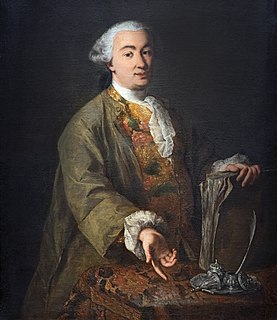A Quote by Aristotle
. . . Political society exists for the sake of noble actions, and not of mere companionship.
Related Quotes
Of actions some aim at what is necessary and useful, and some at what is honorable. And the preference given to one or the other class of actions must necessarily be like the preference given to one or other part of the soul and its actions over the other; there must be war for the sake of peace, business for the sake of leisure, things useful and necessary for the sake of things honorable.
So we must lay it down that the association which is a state exists not for the purpose of living together but for the sake of noble actions. Those who contribute most to this kind of association are for that very reason entitled to a larger share in the state than those who, though they may be equal or even superior in free birth and in family, are inferior in the virtue that belongs to a citizen. Similarly they are entitled to a larger share than those who are superior in riches but inferior in virtue.
Aside from higher considerations, charity often operates as a vastly wise and prudent principle-a great safeguard to its possessor. Men have committed murder for jealousy's sake, and anger's sake, and hatred's sake, and selfishness' sake, and spiritual pride's sake; but no man that ever I heard of, ever committed a diabolical murder for sweet charity's sake. Mere self-interest, then, if no better motive can be enlisted, should, especially with high-tempered men, prompt all beings to charity and philanthropy.
Freedom is necessary for two reasons. It's necessary for the individual, because the individual, no matter how good the society is, every individual has hopes, fears, ambitions, creative urges, that transcend the purposes of his society. Therefore we have a long history of freedom, where people try to extricate themselves from tyranny for the sake of art, for the sake of science, for the sake of religion, for the sake of the conscience of the individual - this freedom is necessary for the individual.
[T]here are, at bottom, basically two ways to order social affairs, Coercively, through the mechanisms of the state - what we can call political society. And voluntarily, through the private interaction of individuals and associations - what we can call civil society. ... In a civil society, you make the decision. In a political society, someone else does. ... Civil society is based on reason, eloquence, and persuasion, which is to say voluntarism. Political society, on the other hand, is based on force.
It is legitimate to have one's own point of view and political philosophy. But there are people who make anger, rather than a deeply held belief, the basis of their actions. They do not seem to mind harming society as a whole in the pursuit of their immediate objective. No society can survive if it yields to the demands of frenzy, whether of the few or the many.





































